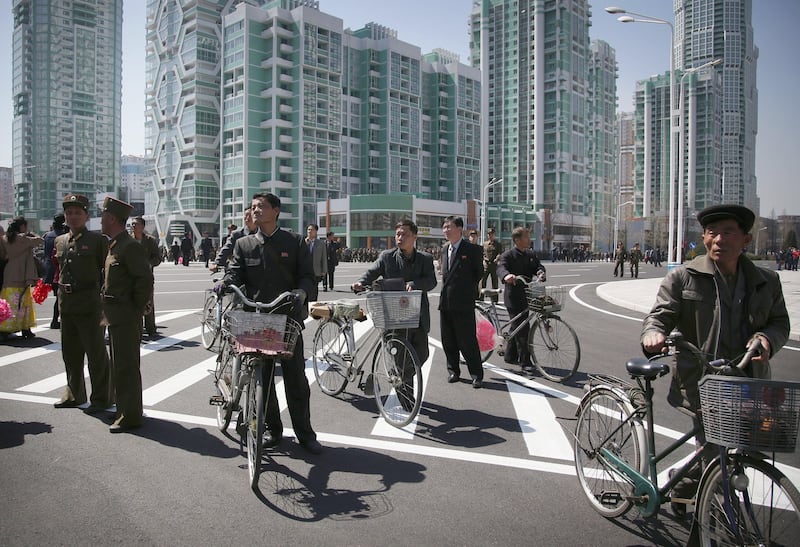North Korea is barring even casual contact between soldiers and civilians, apparently to keep soldiers from smuggling military goods to the public, residents in the country told Radio Free Asia.
Before the COVID-19 pandemic, the two groups were able to interact, and in fact North Korean propaganda portrays a unifying bond between the military and ordinary people.
But soldiers stole military supplies such as food, fuel and Chinese cell phones and smuggled them to civilians, who then sold them in the markets.
When the pandemic struck in early 2020, authorities banned contact between the military and public for health reasons – to keep the disease from spreading.
And authorities found that the theft and smuggling of military goods plummeted, residents said.
So the government wants to continue to keep soldiers and civilians separate even though the worst of the pandemic is over – despite hopes that normal interaction would be allowed again, they said.
Last month, the Korean People’s Army issued instructions to each unit saying that soldiers who contact residents without the unit's permission would be punished.
A similar notice was sent to neighborhood watch units on Nov. 9: “Those who attempt to contact soldiers or invade soldiers’ security areas without any special reason will be severely punished.”
Not even casual chatting
Even bumping into a soldier that you know on the street is a no-no, a resident of the northern province of Ryanggang told RFA Korean on condition of anonymity for security reasons.
“You can’t even ask him how he is doing,” he said of such interactions. “If you are caught talking to the soldier, he will be taken to the military police, and the resident will be taken to a nearby police station for investigation.”

The soldier and the civilian will be investigated separately, the resident said.
“[They] must fill out a fact-check form detailing the circumstances in which they met each other and the conversations they had when they met,” he said. “The police officers compare the facts and if the information matches, they will be released. If the information is different, they will have to undergo an investigation for several days.”
Undermines propaganda
The decision to limit interaction between soldiers and residents is part of Kim Jong Un’s “new ruling style,” another Ryanggang resident, who requested anonymity for safety reasons, told RFA.
She said Kim wants to “completely destroy the traditional relationship between soldiers and residents by controlling any contact between them” as a way of stopping goods intended for the military from appearing in the local market.
“Everything in the marketplace, from the medicine to gasoline and diesel fuel, food, military uniforms, and even salt were all items stolen from the military units by soldiers who were in close contact with the residents,” she said. “It would be difficult to run the market without the goods stolen by the soldiers.”
Soldier-civilian relationships also facilitate cross-border smuggling and information sharing with contacts in China, she said.
“Kim Jong Un’s determination and ruling method is to break this vicious cycle even if the tradition of military-civilian unity is damaged,” she explained, referring to prevalent propaganda campaigns suggesting the two groups are one and the same.
When the country’s nascent market economy was in its infancy during the rule of Kim Jong Un’s father Kim Jong Il, the elder Kim had enacted policies to eliminate marketplaces from emerging, but he was not successful, she said.
“Since the close relationship between soldiers and residents is a means of survival that goes beyond the marketplace, it remains to be seen whether Kim Jong Un can break it off through the force of his will,” she said.
The first source explained how different government-aligned organizations can catch civilians having contact with soldiers if they are not careful.
“The organizations that monitor encounters between soldiers and citizens include the youth crackdown group under the Socialist Patriotic Youth League, the inspection unit under the Worker-Peasant Red Guards, and the Ministry of Social Security’s patrol task force and strike force,” he said.
“In addition, there are state security agents and social security agents in charge of each region. There is also a resident reporting system.
Translated by Claire Shinyoung Oh Lee. Edited by Eugene Whong and Malcolm Foster.
